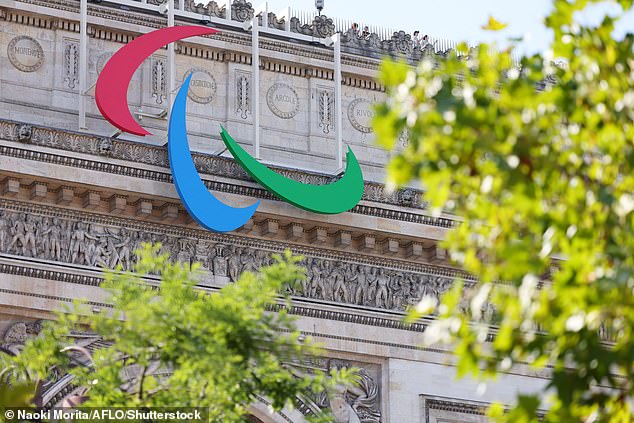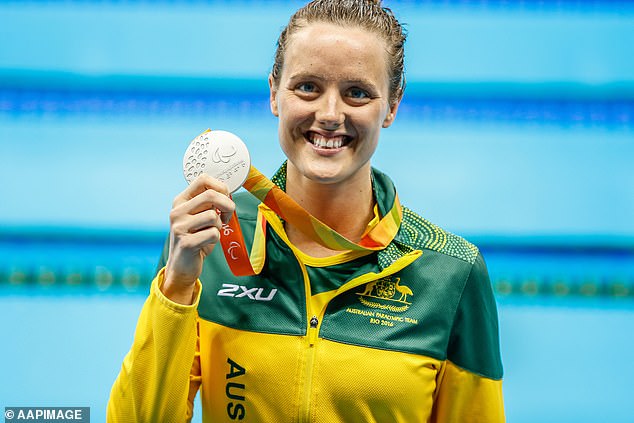Paralympic Games champion outlines the problem that is bigger than doping ahead of Paris competition
- Vanessa Low has highlighted her concerns about the ranking system
- Potential flaws in the system have been raised in the past
- Athletes may be winning medals in the wrong class
Australian Paralympic champion Vanessa Low warned that classification issues are a bigger problem than doping at this year’s sporting event in Paris.
The Paralympic Games, which begin tonight with the opening ceremony on the Champs-Elysees, use a classification system that determines which groups athletes are placed into, depending on the type and severity of their disability.
Classification undoubtedly offers athletes a great opportunity to compete and inspire millions on the biggest stage. However, questions have been raised about the system and how competitors are categorized.
Accusations of athletes exaggerating or even lying about symptoms have overshadowed the recent Paralympic Games. The International Paralympic Committee will introduce a new code next year for the first time since 2015.
“The new code promises to improve classification for athletes and further increase the confidence and integrity of classification and para-sport competition,” the IPC said earlier this year.
Australian long jumper Low acknowledged that athletes could win gold medals in events they shouldn’t be competing in.
“I mean, we always run that risk and I think it has happened in the past,” Low told Nine’s Wide World of Sports.
‘The reality is that classification is still quite a subjective issue in some cases, where it is very difficult to measure. This is especially true for the cerebral palsy categories, where you cannot see exactly how the disability affects the athlete.
Vanessa Low has expressed her concerns about the classification system at the Paralympic Games

The Games kick off tonight in Paris with the opening ceremony
‘At the moment the system is set up in such a way that there are opportunities to find little loopholes and exaggerate the limitations of athletes. I really hope that the change to the classification code means that those windows become a lot smaller and that the athletes who do the right thing are protected from misconduct.’
Low outlined the seriousness of the problem, claiming it is more important than the debate over the anti-doping system.
“It’s probably as important, if not more important, than the anti-doping system because the Paralympic Games are based on classification,” Low added.
‘If we didn’t have classification, we would have one competition and that wouldn’t be fair at all. We all have different disabilities and they affect us differently and that’s why we need classifications.
“If we get that wrong and we don’t have the same group of athletes that we can compare in a fair way, then the sport is not worth looking at because we are not seeing equal opportunities and equal performances.”
Australian swimming legend Ellie Cole echoed Low’s sentiments, speaking about the mental health challenges that come with worrying about the system.

Australian swimmer Ellie Cole also raised concerns about the system
“When I was an athlete, it was really hard. If you were racing, you might think that someone you were racing with wasn’t in the right category,” Cole said.
‘But at the same time, most athletes don’t have medical training and don’t really know what’s going on behind the scenes with someone else’s disability, so you just see what’s in front of you and make a judgment or assumption based on what’s in front of you.
I think for them [the IPC] do it again [renewing the classification code] shows how critically the classification system is being looked at now, especially as the Paralympic movement gains more attention. I think it’s a really important step to take for fair and equal sportsmanship, and I hope they make some really positive changes.’
